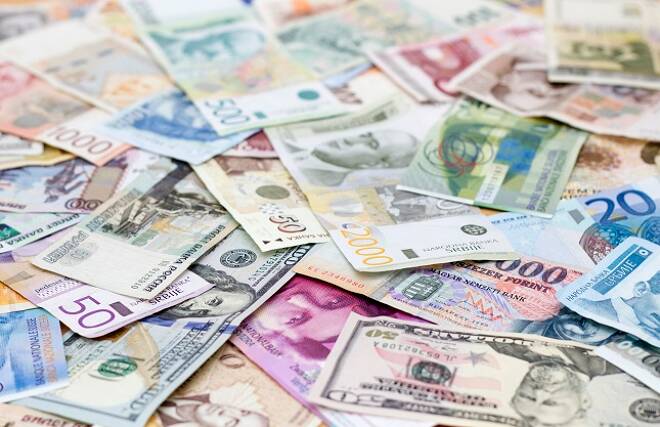Advertisement
Advertisement
‘Risk-Off’: Profit-Takers Hit Aussie, Kiwi, Safe-Haven Demand Boost Yen
By:
The RBA said the main drag on the economy from a stronger currency would be the impact on international trade, making Australian exports less competitive while simultaneously lowering the cost for imports.
The Asia Pacific currency markets started on a high note, fueled by optimism that improving U.S.-China trade relations would lead to global economic expansion. The currencies were also boosted by a weaker U.S. Dollar as investors continued to shed their hedge positions placed throughout 2019 as protection against an escalation of the trade war.
Forget the specifics of the trade deal, essentially, the Aussie, Kiwi and Japanese Yen were all being supported by some extent by increasing demand for risk. Was this based on facts? It’s hard to say, probably not. Speculation that the global economy would improve, not real numbers, drove the Aussie and Kiwi higher.
Risk sentiment shifted on Friday, however, with the U.S airstrike that killed a high-ranking Iranian major-general, and traders dumped the higher-risk Australian and New Zealand Dollars. The safe-haven Japanese Yen rose, however, as investors moved to protect their investments against a further decline.
Last week, the AUD/USD settled at .6945, down 0.0040 or -0.57%. The NZD/USD finished at .6663, down 0.0041 or -0.61% and the USD/JPY closed at 108.116, down 1.348 or -1.23%. More importantly, the Aussie and the Kiwi posted potentially bearish closing price reversal tops, which could signal the start of a 2 to 3 week correction.
It’s funny how things work out sometimes. While long speculators enjoyed the sharp rise in the Australian and New Zealand Dollars, their respective central banks did not. Remember strong currencies tend to hurt economies because they put pressure on exports. The Bank of Japan can’t be happy about the rising Japanese Yen either for the same reason.
It seems if your economy is an island, you may prefer steady to lower currency prices. Especially now when dovish monetary policy moves have been put in place to weaken the currency in an attempt to revive an economy.
Last Week Recap
There were no major economic releases from Australia, New Zealand and Japan. Australia did release a report on commodity prices on Thursday, but New Zealand enjoyed bank holidays on Tuesday and Wednesday. Japan was on holiday from Monday through Thursday.
Reserve Bank of Australia Warning
In keeping with the theme that a strong Australian Dollar would be bad for the economy, and a weaker currency good, keep in mind the comment from the RBA in its November Statement of Monetary Policy (SOMP).
The RBA said the main drag on the economy from a stronger currency would be the impact on international trade, making Australian exports less competitive while simultaneously lowering the cost for imports.
“As a result, export volumes fall and imports increase,” the RBA said.
About the Author
James Hyerczykauthor
James Hyerczyk is a U.S. based seasoned technical analyst and educator with over 40 years of experience in market analysis and trading, specializing in chart patterns and price movement. He is the author of two books on technical analysis and has a background in both futures and stock markets.
Advertisement
